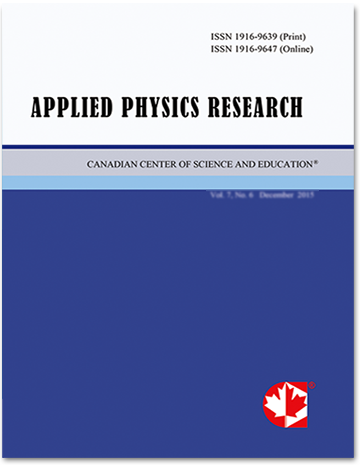Variation of Total Electron Content [TEC] and Their Effect on GNSS over Akure, Nigeria
- Rufus Sola Fayose
- Rabiu Babatunde
- Olakunle Oladosu
- Keith Groves
Abstract
The effect of Space weather is usually linked to disturbances in the ionosphere (gradients in the Total electron content (TEC)). This has signi?cant effect especially for GPS users causing degradation in range measurements, loss of lock by the receiver of the GPS signal. Knowledge of these TEC gradients is important to various GPS users. When a GPS signal encounters large gradients in TEC, the ionospheric error in the range measurement is difficult to model and therefore eliminated (for single frequency GPS users) or, in the case of differential GPS, cannot be canceled out. For differential GPS (DGPS) or real time kinematic (RTK) users, differences over the baseline as small as 2 TEC units, where one TEC unit is 10¹6 electrons/m2, can be problematic in resolving ambiguities. Though quite a lot has been done in the developed nations in this respect, there is a dearth of such information for the developing region. This paper therefore presents the variation of total electron content (TEC) over a tropical in at Akure, Nigeria (7.15ºN, 5.12ºE) using GPS data collected over a period of one year. The data was analyzed using the GPS-TEC analysis application software provided by Institute of scienti?c research, Boston College, USA. Result obtained shows signi?cant daily and seasonal variation TEC gradients in the region.- Full Text:
 PDF
PDF
- DOI:10.5539/apr.v4n2p105
Journal Metrics
Google-based Impact Factor (2017): 3.90
h-index (November 2017): 17
i10-index (November 2017): 33
h5-index (November 2017): 12
h5-median (November 2017): 19
Index
- Bibliography and Index of Geology
- Civil Engineering Abstracts
- CNKI Scholar
- CrossRef
- EBSCOhost
- Excellence in Research for Australia (ERA)
- Google Scholar
- Infotrieve
- LOCKSS
- NewJour
- Open J-Gate
- PKP Open Archives Harvester
- SHERPA/RoMEO
- Standard Periodical Directory
- Ulrich's
- Universe Digital Library
- WorldCat
Contact
- William ChenEditorial Assistant
- apr@ccsenet.org
